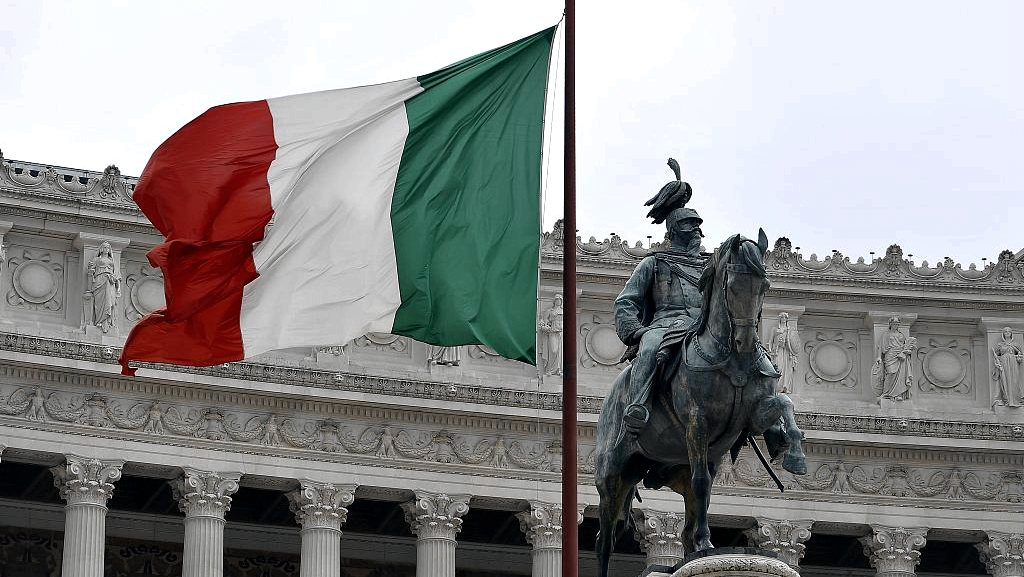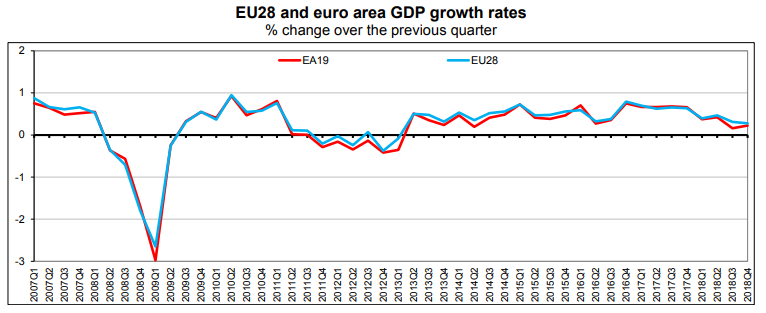
Economy
13:33, 01-Feb-2019
Italy enters recession as outlook for Eurozone darkens
Nicholas Moore

Italy fell into recession in the final few months of 2018, highlighting the challenges facing its populist government amid growing concerns about the wider Eurozone economy.
GDP figures for the fourth quarter of 2018 showed the Italian economy shrinking by 0.2 percent, a second consecutive month of decline which pushed the country into recession territory.
Most analysts had expected Thursday's data to confirm the recession, with Italian Prime Minister Giueseppe Conte saying “I am not worried.”
Conte, who fronts a populist coalition government that has vowed to implement a series of costly policies despite a huge national debt, said “"we have no reason to lose confidence. On the contrary, we have lots of enthusiasm.”
Conte looked to blame ongoing global trade tensions for damaging exports, while Deputy Premier Luigi Di Maio said previous governments “lied to us, never brought us out of the recession.”
Italian authorities should also be concerned that a business confidence survey showed sentiment hitting a low not seen since August 2016, suggesting a sense of pessimism counter to Conte's “enthusiasm” for the year ahead.
Italy's budget for 2019, which was finally approved by the EU in December after Rome and Brussels reached a compromise on expenditure, includes huge tax cuts for self-employed workers and a national “citizens' wage” of 780 euros (890 U.S. dollars) per month for 1.7 million poor households.
Rome has fallen into recession three times since the global financial crisis, and while Bloomberg reports that most analysts expect Italy to return to growth from the spring, the struggling economy is a serious concern for Brussels, given wider anxieties across the Eurozone.

A chart from Eurostat showing GDP growth in the Eurozone (EA19) and wider European Union (EU28). /Image via Eurostat
A chart from Eurostat showing GDP growth in the Eurozone (EA19) and wider European Union (EU28). /Image via Eurostat
Eurostat, the statistical office of the European Union, also published its quarterly GDP data on Thursday, confirming comments from European Central Bank Chief Mario Draghi last month that growth was weaker than expected.
Eurozone GDP increased 0.2 percent quarter-on-quarter in the last three months of 2018, or 1.2 percent on a year-on-year basis. For 2018 overall, Eurostat suggested the Eurozone expanded 1.8 percent.
Beyond Rome, concerns are also focusing on the health of Germany's economy. Earlier this week Berlin announced it was expecting GDP growth of just 1.0 percent for 2019, slashing the previous outlook of 1.8 percent for the EU's largest economy.
German industrial output fell 4.7 percent from January to November in 2018, a damning statistic which puts question marks over the Eurozone's ability to respond to potential economic shocks in 2019, with uncertainty continuing to surround Brexit negotiations and the French economy still uneasy following the gilets jaunes movement at the end of 2018.

SITEMAP
Copyright © 2018 CGTN. Beijing ICP prepared NO.16065310-3
Copyright © 2018 CGTN. Beijing ICP prepared NO.16065310-3